As per the norm, the political and military leadership of the country, including Prime Minister Imran Khan, issued lengthy statements, ordering a probe and expressing sympathies with the bereaved families.
All this sounds so repetitive and so deceitful now, to the extent that these gory massacres targeting a particular community have been normalized in the national discourse.
Despite the thunderous slogans of ‘Naya Pakistan’ (New Pakistan), it’s the same old story of pain, loss, and hopelessness. Pakistan is a bleeding nation today, as it was yesterday. Minorities, especially the Hazara Shias, continue to face persecution. They continue to live on the edge.
There are heartrending tales of hopelessness and helplessness. Hazara Shias of Pakistan are a proud community and staunch nationalists. They remain loyal to their country. It is the unflinching love for Pakistan that gives them the courage to walk the tightrope between life and death.
But, a minuscule minority of hate-mongering radicals have hijacked Mohammad Ali Jinnah’s dream of a country where all Muslims would live in peace and harmony. They are not just the enemies of Shias but the enemies of the idea of Pakistan as well.
Hazara community, who make up about 500,000 of Quetta's 2.3 million people, is known to be one of the most peace-loving communities in Pakistan but at the same time, they also happen to be the most vulnerable, especially in Quetta city of Balochistan, where they have faced kidnappings, targeted killings and suicide blasts.
When a person leaves home in the morning, he is not sure whether he will be back in the evening. This frightening uncertainty and unpredictability define their daily lives.
‘Hazara genocide’ is not a new phenomenon as it has consumed thousands of innocent lives over the years, both in Pakistan and neighboring Afghanistan. It has been one of the biggest internal security challenges for the successive governments in Islamabad and has now become a matter of concern for the Imran Khan-led PTI government as well.
The carnage in Hazarganji market area on Friday morning was not the first attack against the community and perhaps won’t be the last. Community activists have blamed the country’s security agencies of not providing them adequate security and not announcing a comprehensive plan to ensure their wellbeing. They have warned that if the government does not wake up to the challenge, the juggernaut will roll on.
Like on previous occasions, the families of victims took to streets again to protest against the government for not ensuring their safety and protection. They refused to bury the dead and staged a sit-in in Quetta city, demanding the attention of the Imran Khan government.
They are incredibly brave and resilient but they are also helpless. They can raise their voices but they cannot make their voices heard.
The Quetta attack snatched away many precious lives and shattered many dreams, leaving behind mourning families, orphans and widows. The world will never be the same again for those families.
A heartbreaking story of one of the victims Ali Hazara brought tears to many eyes. Ali Hazara, the only breadwinner for his family, did menial jobs to earn a livelihood. He was sent by his mother that fateful morning to the vegetable market to buy some stuff. While leaving, his mother told him: “if you won’t bring anything, we would have just dry bread to eat at night”. He replied, with a dash of humor: “eating dry bread with water has its own taste”. He left and never came back. His bereaved mother stood next to his lifeless body, pleading with him: “Just open your eyes. I wouldn’t ask for anything.”
Condemnations have poured in from different quarters, including from PM Khan. He took to Twitter to express his sadness and asked for “an immediate inquiry and increased security for the (Hazara) people”. Such statements have been issued before also by his predecessors. And it has been business as usual.
Global watchdog bodies have urged the government to take immediate measures for the protection of these vulnerable people. Amnesty International said in a statement the blast was a “painful reminder” of the many attacks suffered by the Hazara community in Quetta over the years and called for the government of Prime Minister Imran Khan to give them better protection.
The sit-in has entered its third day and the protestors have refused to go home despite assurance by the federal government. They have reiterated the demands and called for the identification and arrest of the perpetrators of Hazarganji market attack, adequate security measures and implementation of the National Action Plan (NAP).
Jaleela, one of those participating in the sit-in, was quoted as saying that they won’t budge until their demands were implemented.
“We demand that the Chief of Army Staff (COAS) come here and see the misery and hardships of Hazara people. How much should they suffer,” she asked. “Why are they being killed, where is the NAC, where is the project of Quetta safe city.” Apparently, the government seems to have no answers.
Condolences and sympathies are fine but the government officials need to move beyond that. They need to identify the killers of Hazara Shias and hand over exemplary punishment to them. They need to stop this madness and assure these loyal citizens of Pakistan that they are safe in their homes. Otherwise, the bloodletting will continue and ‘Naya Pakistan’ (New Pakistan) will remain a pipedream.
MNA/TT


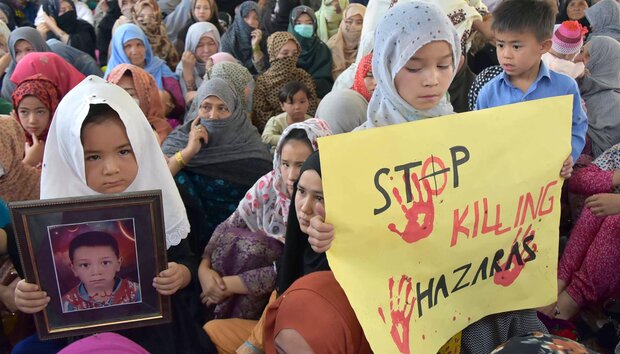


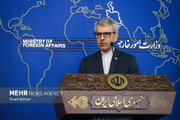

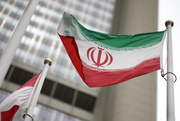





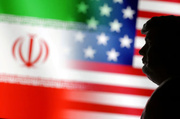
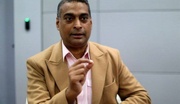
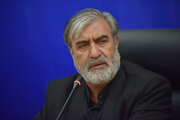
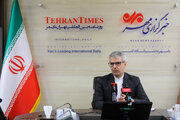


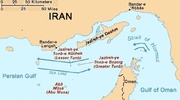



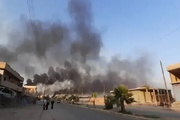

Your Comment